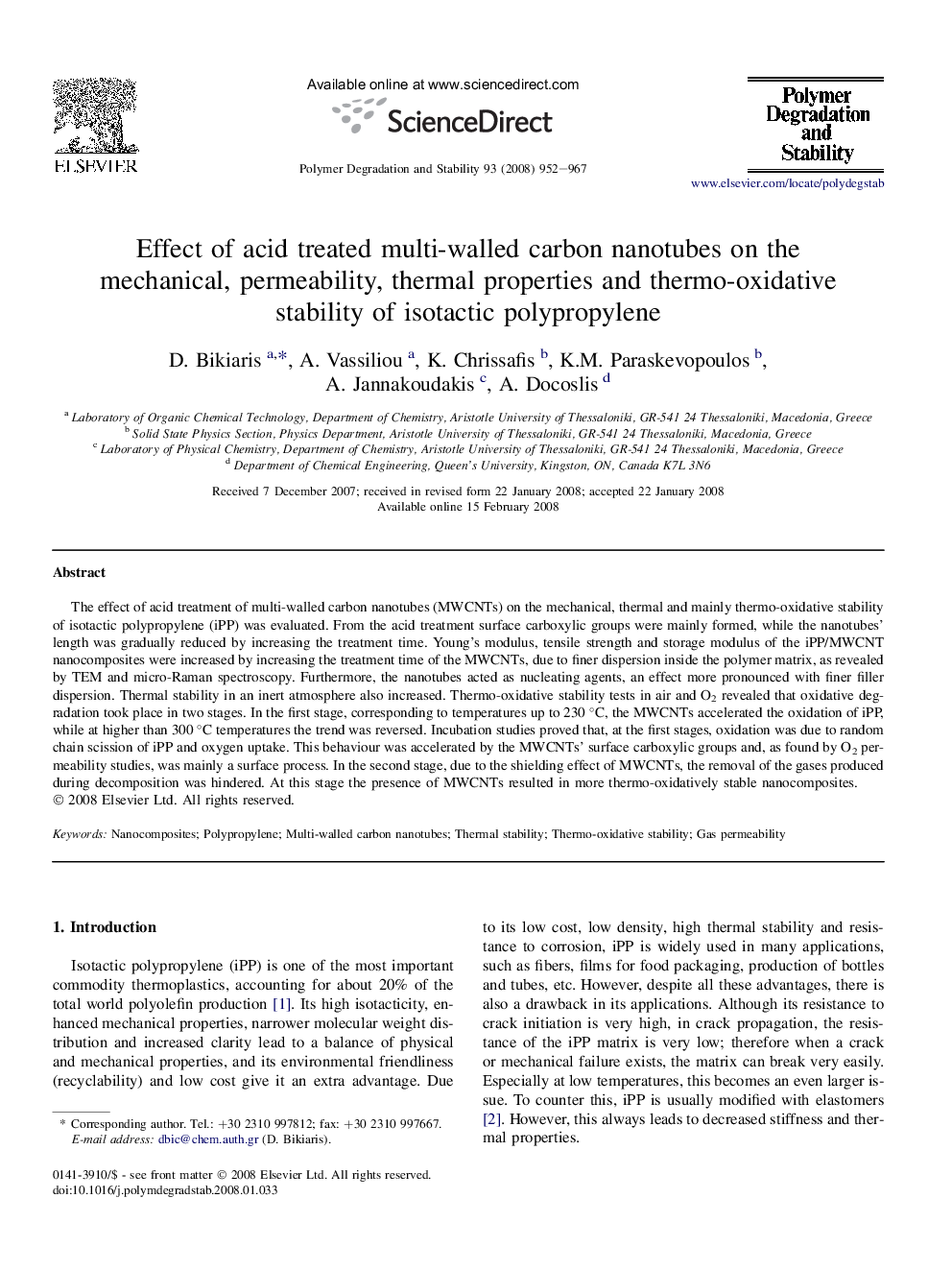| Article ID | Journal | Published Year | Pages | File Type |
|---|---|---|---|---|
| 5204501 | Polymer Degradation and Stability | 2008 | 16 Pages |
Abstract
The effect of acid treatment of multi-walled carbon nanotubes (MWCNTs) on the mechanical, thermal and mainly thermo-oxidative stability of isotactic polypropylene (iPP) was evaluated. From the acid treatment surface carboxylic groups were mainly formed, while the nanotubes' length was gradually reduced by increasing the treatment time. Young's modulus, tensile strength and storage modulus of the iPP/MWCNT nanocomposites were increased by increasing the treatment time of the MWCNTs, due to finer dispersion inside the polymer matrix, as revealed by TEM and micro-Raman spectroscopy. Furthermore, the nanotubes acted as nucleating agents, an effect more pronounced with finer filler dispersion. Thermal stability in an inert atmosphere also increased. Thermo-oxidative stability tests in air and O2 revealed that oxidative degradation took place in two stages. In the first stage, corresponding to temperatures up to 230 °C, the MWCNTs accelerated the oxidation of iPP, while at higher than 300 °C temperatures the trend was reversed. Incubation studies proved that, at the first stages, oxidation was due to random chain scission of iPP and oxygen uptake. This behaviour was accelerated by the MWCNTs' surface carboxylic groups and, as found by O2 permeability studies, was mainly a surface process. In the second stage, due to the shielding effect of MWCNTs, the removal of the gases produced during decomposition was hindered. At this stage the presence of MWCNTs resulted in more thermo-oxidatively stable nanocomposites.
Keywords
Related Topics
Physical Sciences and Engineering
Chemistry
Organic Chemistry
Authors
D. Bikiaris, A. Vassiliou, K. Chrissafis, K.M. Paraskevopoulos, A. Jannakoudakis, A. Docoslis,
